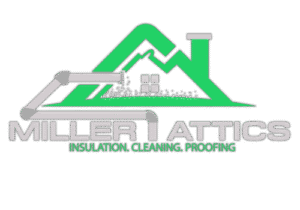Commercial Services

We offer free on-site assessments and detailed quotes based on your building’s needs. Whether you’re upgrading an older roof or planning new construction, our team can support your project from start to finish.
At Miller Attics, we specialize in commercial roof insulation services designed to improve the comfort, efficiency, and performance of large-scale properties. Our solutions are tailored specifically for offices, retail spaces, warehouses, and multifamily buildings, where insulation plays a critical role in reducing operating costs and protecting investments. Whether your building struggles with excessive heat gain, rising utility bills, or outdated insulation systems, our team provides professional installation and upgrades that meet the latest building codes and energy-efficiency standards. By choosing Miller Attics, you ensure your property benefits from long-lasting insulation that helps maintain stable indoor temperatures, supports HVAC performance, and lowers overall energy consumption—delivering measurable savings year after year.

What We Offer
Why Commercial Roof Insulation Matters
Lower monthly utility costs
Better temperature control for staff and customers
Less strain on HVAC systems
Improved acoustic performance (noise reduction)
Increased property value and sustainability

Lower monthly utility costs
With professional commercial roof insulation, businesses can significantly reduce energy waste. By preventing heat transfer through the roof, your building stays cooler in summer and warmer in winter without overusing HVAC systems. This efficiency translates into noticeably lower monthly utility bills, freeing up budget for other operational needs.

Less strain on HVAC systems
When a roof is poorly insulated, heating and cooling equipment must work harder to regulate indoor temperatures. By investing in your roof insulation, you reduce the workload on your HVAC system, lower maintenance costs, and extend equipment lifespan, while enjoying consistent comfort and reliable energy performance year-round.

Better temperature control for staff and customers
A well-insulated roof creates a more stable indoor climate, ensuring employees and customers remain comfortable throughout the year. It is helps minimize hot and cold spots, reduces drafts, and keeps indoor temperatures consistent—even in extreme weather—leading to better workplace productivity and improved customer satisfaction.

Improved acoustic performance (noise reduction)
Beyond energy savings, commercial roof insulation also provides excellent soundproofing benefits. Insulation materials act as a barrier to reduce external noise from traffic, machinery, or weather. This creates a quieter, more professional environment for staff and customers, improving overall comfort in commercial offices, retail spaces, and large facilities.

Increased property value and sustainability
Upgrading to commercial building roof insulation boosts your property’s market value by enhancing energy efficiency and environmental performance. A properly insulated roof not only attracts eco-conscious tenants but also aligns with green building standards, helping your business contribute to sustainability goals while maximizing long-term financial return on investment.
Get a free inspection, same-day quote, and expert service — no strings attached.
Commercial Roof Insulation – FAQ
What type of insulation is best for commercial flat roofs?
The most common materials are polyiso boards, extruded polystyrene (XPS), and mineral wool. Polyiso is popular for its high R-value per inch, XPS for its moisture resistance, and mineral wool for fire resistance and sound control. The “best” depends on climate, budget, and building codes.
How much insulation do I need to meet code requirements?
Building codes often require R-30 or higher for commercial roofs, depending on location. To reach this, multiple layers of rigid board insulation are usually installed above the roof deck. It’s important to check your local energy code to confirm the exact requirement.
Can I just add more insulation on top of an old roof system?
In many cases, yes—but only if the existing roof is stable, dry, and meets code. Continuous insulation layers must be uniform and properly fastened. If the current roof is damaged, saturated, or non-compliant, the old insulation may need to be removed first.
Is mineral wool board a good choice for commercial roofs?
Mineral wool offers excellent fire resistance, moisture tolerance, and acoustic performance. However, it has a lower R-value compared to polyiso. Many architects recommend it for specific safety or noise-control applications, often in combination with higher R-value materials.
Should I insulate a new metal building roof differently?
Yes. Metal buildings are prone to heat gain and condensation. Commercial roof insulation for metal structures often combines rigid boards with a vapor barrier or spray foam to maintain R-value and control moisture. Double-layer systems may be used to reach efficiency targets.
